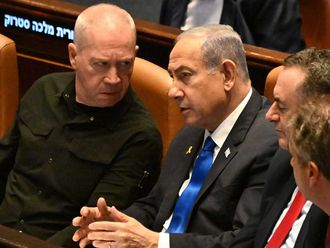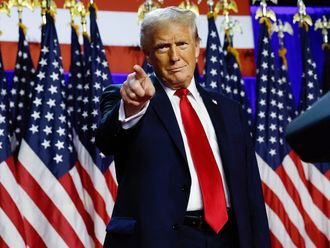Cairo: An official commission, overseeing Egypt's crucial presidential elections, has suspended its work in protest against alleged rebuke from parliament, according to an official in the panel, throwing this month's polls in doubt.
"The commission decided to suspend its work after learning that some members of the parliament went too far in criticising it," said Hatem Begatu, the panel's secretary general. "We are waiting to see how the [ruling] military council will do before we decide to resume our job," he added.
The Islamist-dominated parliament criticised the commission, composed of senior judges, during a debate on Monday about introducing amendments to a law ruling this month's presidential elections, Egypt's first since a popular revolt toppled long-standing president Hosni Mubarak.
Begatu accused the parliament of questioning his commission's integrity. "We held a crisis meeting and requested the military council to intervene to exercise its authority in separating between the [legislative and judicial] powers so that the elections could be held as scheduled," he added.
The commission has recently drawn harsh criticism mainly from Islamists after it barred the populist Salafist [ultraconservative] preacher Hazem Salah Abu Esmail and the powerful Muslim Brotherhood's deputy leader Khairat Al Shater from standing as president. The panel, whose decisions cannot be appealed, has said that the two aspirants were disqualified for failing to meet the criteria set for contesting presidency.
Thirteen people, including Mubarak's last premier Ahmad Shafiq, are vying for Egypt's top post in the polls scheduled for May 23-24.
"The commission cannot accept the threats made by some lawmakers at this particular time," said the panel in a statement. "This undermines the commission's strenuous efforts to do its job well to achieve Egyptians' aspirations," added the statement.
The commission said it had indefinitely delayed a meeting, which was originally due to be held on Tuesday [yesterday] with presidential contenders.
The crisis is the latest in mounting turmoil in Egypt in the run-up to the presidential vote. Last week, 10 people, including an army soldier, were killed and hundreds injured in violence near the defence ministry in Cairo. Anti-military protesters, demanding the election commission be dissolved for alleged bias, had camped out in the place before being attacked by unidentified thugs and later clashing with army troops.
The opposition has accused the military, who has been ruling Egypt since Mubarak's ouster, of orchestrating the violence purportedly to delay the presidential vote and prolong their stay in power.
"The latest crisis is due to the election commission's belief that the parliament seeks to encroach on its powers by debating new rules for the presidential polls," said Nabil Zaki of the leftist Tagammu (Unionist) Party.
He argued that the solution lies in the military rulers' interference to cancel the amended law drafted by the parliament on the presidential vote. "There is a real crisis between the legislative and judicial powers, which should be defused so that the (presidential) elections will be held on time and run smoothly," he added.
The military has pledged to hand over power to an elected civilian authority by the end of June.











